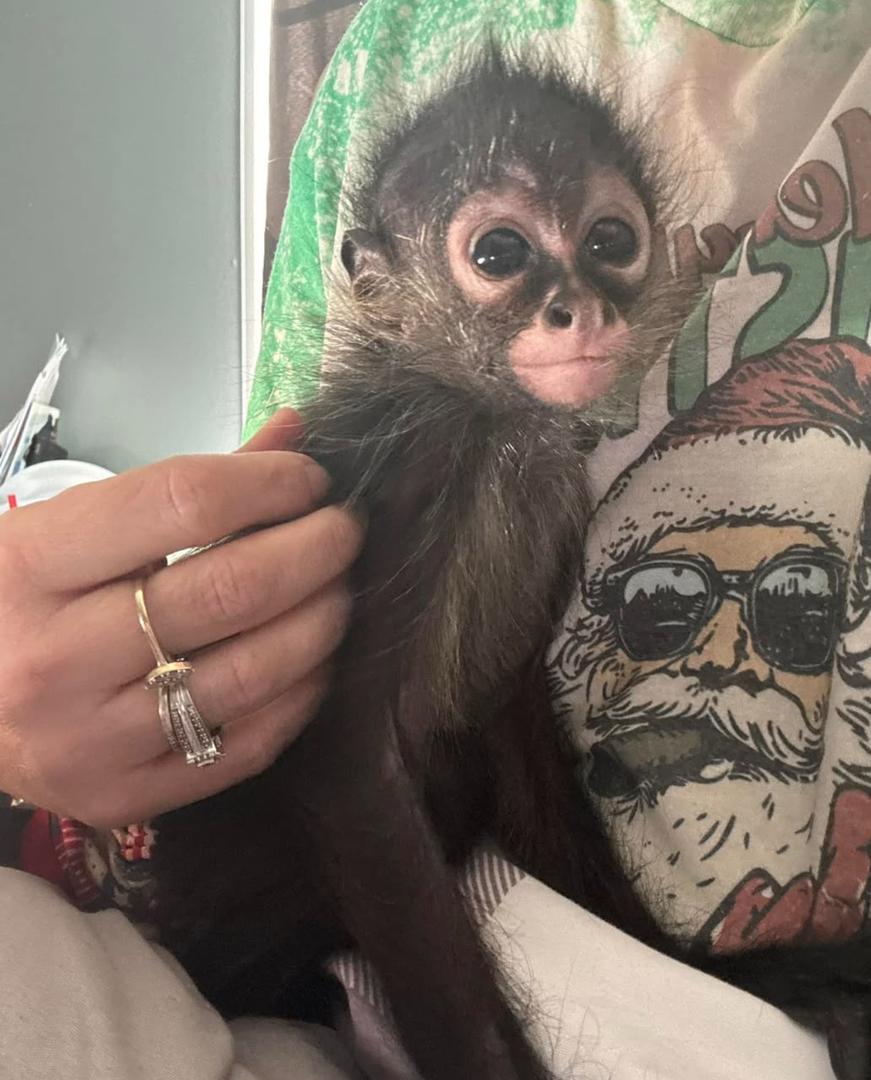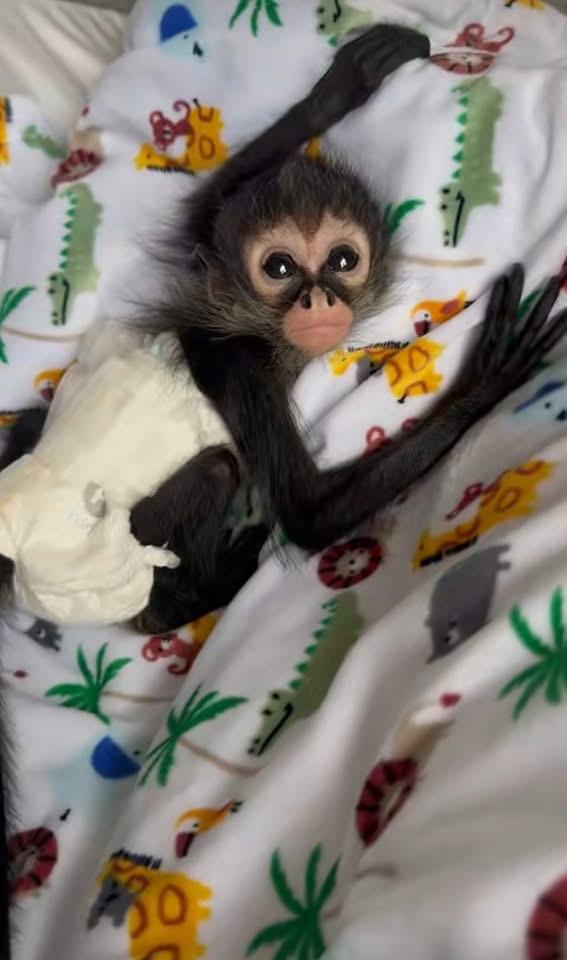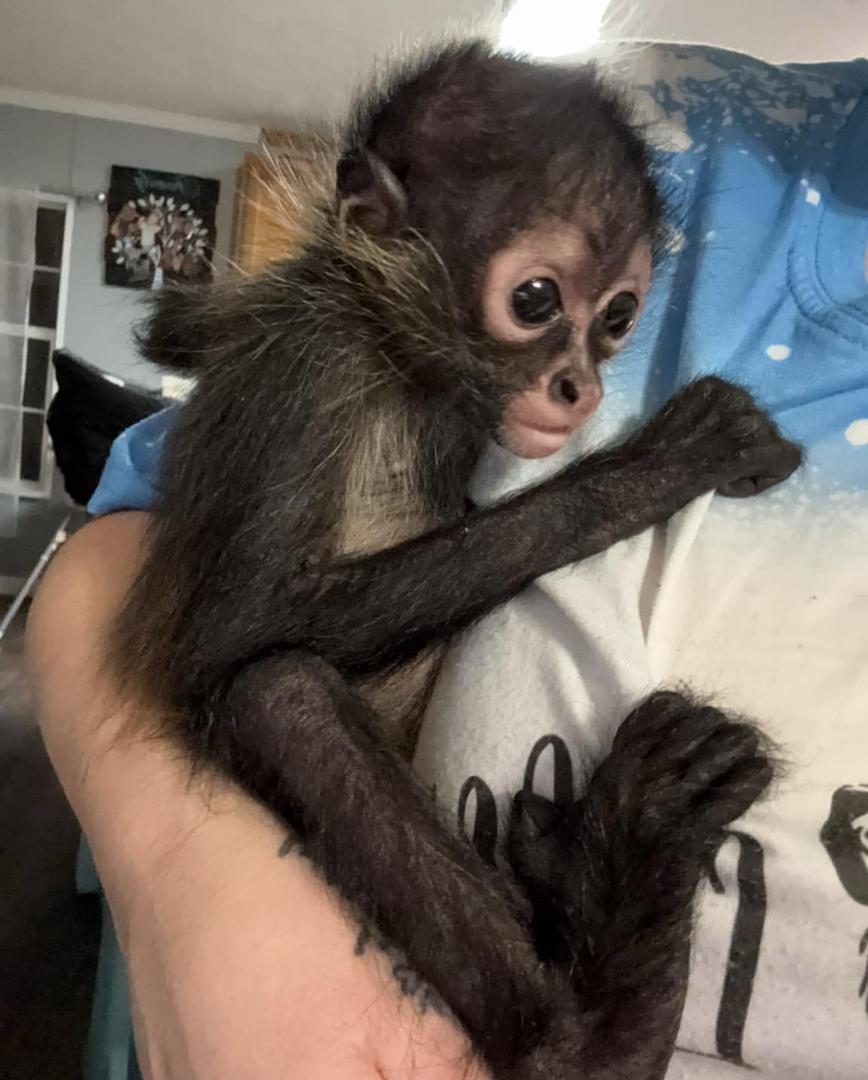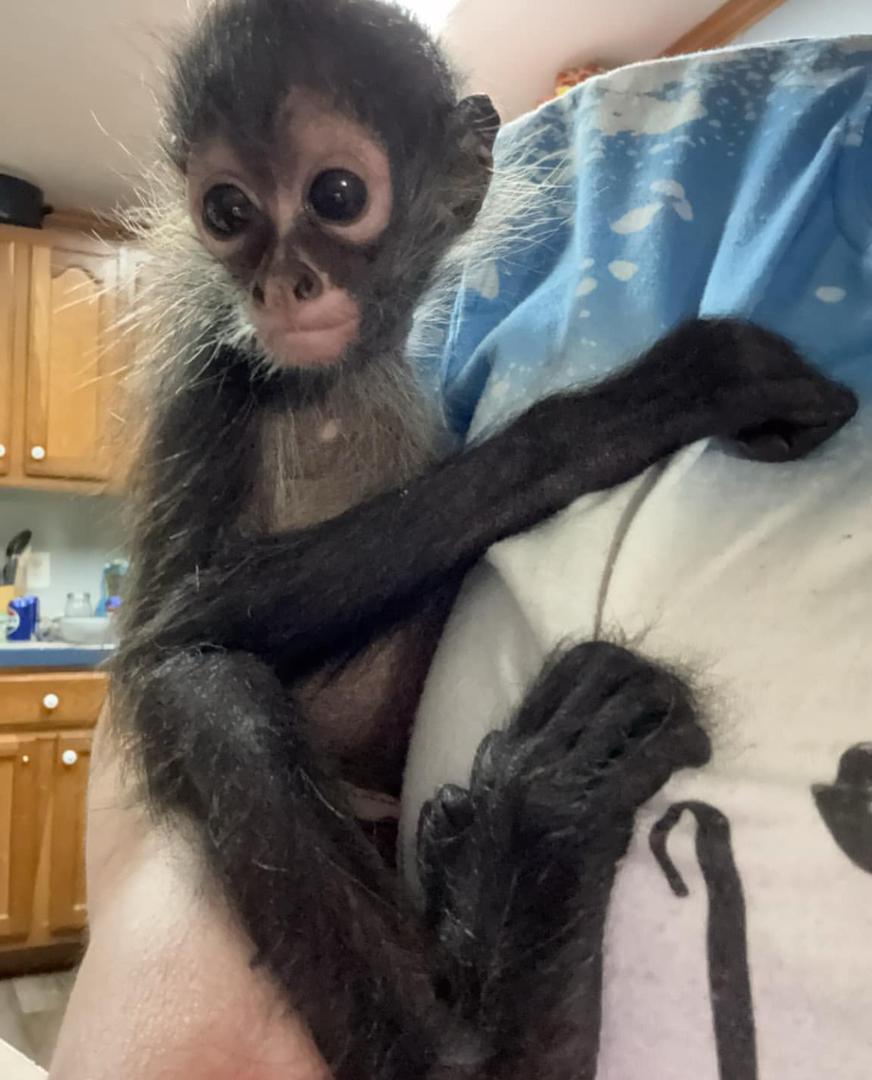Description
Spider Monkeys for Sale: A Detailed Explanation of the Responsibilities and Considerations
If you’re thinking about purchasing a spider monkey, it’s essential to understand that owning one of these exotic creatures is not like having a traditional pet. Spider monkeys are highly intelligent, social, and complex animals that require a great deal of care and attention. This guide will explore the important considerations—both legal and ethical—that come with owning a spider monkey, as well as the practical aspects of their care, housing, and long-term commitment.
What is a Spider Monkey?

Spider monkeys belong to the Ateles genus, which includes several species found in the tropical forests of Central and South America. These primates are known for their long, slender bodies, prehensile tails, and strong, agile limbs, which make them exceptional climbers and capable of moving gracefully through the trees. Spider monkeys are social animals that live in large groups in the wild and thrive in forested environments with lots of vertical space for movement.

There are several species of spider monkeys, each with unique traits, but they all share similar needs and behaviors. Some common species include:
- White-bellied Spider Monkey: Found in Central America, particularly in the rainforests.
- Peruvian Spider Monkey: Native to the Amazon rainforests in Peru.
- Brown Spider Monkey: Common in the tropical forests of South America.
- Black-headed Spider Monkey: Inhabits areas of Central America.
Is it Legal to Buy a Spider Monkey?
Before considering the purchase of a spider monkey, it is critical to understand the legalities involved. In many countries, including the United States, there are strict laws regulating the ownership of exotic animals like spider monkeys.
- Local and State Regulations: Many states and cities have specific regulations that either prohibit or heavily restrict the ownership of primates, including spider monkeys. In some areas, ownership might be allowed only with a special permit, while in others, it may be outright banned. It’s crucial to check your local laws before proceeding.
- Federal Regulations: In the U.S., the Animal Welfare Act (AWA) governs the treatment of animals in captivity, but it does not prohibit the private ownership of monkeys. However, there are international laws that regulate the trade and importation of exotic animals to prevent the spread of diseases and protect endangered species. The U.S. Fish and Wildlife Service (FWS) enforces these laws, and you’ll need to be aware of import restrictions if you’re considering purchasing a spider monkey from another country.
- Permits and Licensing: If you are legally allowed to own a spider monkey in your area, you’ll likely need a permit. To obtain this, you’ll typically have to demonstrate that you have adequate knowledge of their care and an appropriate living environment. You may also be required to allow inspections of your home and facilities.
Ethical Considerations: Should You Own a Spider Monkey?
While the idea of owning a spider monkey as a pet might seem fascinating, it’s important to consider the ethical implications of such an ownership. Spider monkeys have complex social, physical, and psychological needs that are difficult, if not impossible, to meet in a typical home environment. Here are the key ethical concerns:
- Social Needs: Spider monkeys are highly social animals that live in large groups in the wild. Isolating them in a solitary environment can lead to severe behavioral problems, such as depression, aggression, and self-destructive behaviors. If you don’t plan to have multiple monkeys, it’s difficult to replicate the social dynamics they experience in the wild.
- Space Requirements: Spider monkeys need large, complex environments that mimic their natural arboreal (tree-dwelling) habitats. A standard home or backyard simply isn’t large enough to provide the kind of space they need to climb, swing, and explore. Without a suitable enclosure, they can experience frustration, boredom, and stress.
- Natural Behaviors: Spider monkeys rely heavily on climbing and swinging through trees. Without appropriate vertical space, their physical and mental health can deteriorate. Providing proper enrichment, such as climbing structures, ropes, and toys, is essential, but it’s often challenging to replicate their natural environment fully.
For these reasons, many experts suggest supporting spider monkeys in their natural habitats through conservation efforts or volunteering at sanctuaries instead of keeping them as pets. Learn More
Practical Care and Housing for Spider Monkeys
If, despite the challenges, you still wish to pursue the ownership of a spider monkey, there are several practical considerations to be aware of:
- Enclosure Design: A spider monkey’s enclosure should be designed to mimic its natural environment as closely as possible. This means providing large, open spaces that include vertical structures like trees, ropes, and climbing platforms. The minimum size for a spider monkey’s enclosure should be at least 225 square feet, but more space is highly recommended. The more you can replicate the natural environment, the happier and healthier your monkey will be.
- Diet and Nutrition: Spider monkeys are omnivores, meaning they eat a variety of foods, including fruits, vegetables, nuts, seeds, and small animals. A balanced diet is crucial for their health and should include a commercial primate diet as a base, along with fresh fruits and vegetables. Their diet should be carefully managed, as improper nutrition can lead to health issues.
- Health and Veterinary Care: Monkeys are susceptible to diseases that can affect both them and humans. They can carry zoonotic diseases, like the herpes B virus, which can be fatal to humans. It’s essential to have a veterinarian experienced in exotic animals to care for the monkey’s health, conduct regular checkups, and address any concerns.
- Behavioral Needs and Enrichment: Spider monkeys are intelligent and curious, and they require a variety of enrichment activities to keep them mentally stimulated. This includes providing interactive toys, puzzles, and access to materials that allow them to engage in natural behaviors, such as foraging and climbing.
Finding a Reputable Seller
If you are still committed to buying a spider monkey, you must ensure that you purchase from a reputable seller who prioritizes the animal’s well-being and adheres to legal regulations. A trustworthy breeder or seller will:
- Provide you with health guarantees, proof of vaccinations, and proper documentation for the animal.
- Follow ethical breeding practices and ensure that the monkeys they sell are not taken from the wild but bred in captivity.
- Offer advice on long-term care, housing requirements, and behavioral needs.
Avoid buying a spider monkey from illegal or unregulated sources, as these sellers may not follow ethical or legal guidelines, leading to potential harm to the animal.
Conclusion: Is Owning a Spider Monkey Right for You?
Owning a spider monkey is a significant, long-term commitment that requires a lot of effort, knowledge, and financial resources. These animals are not suited to most households due to their complex needs, and for many people, a better option may be supporting their conservation or volunteering at a sanctuary.
Before making any decisions, consider all the legal, ethical, and practical responsibilities involved. Remember that in many cases, the best way to engage with and support spider monkeys is through wildlife sanctuaries, donations, and advocacy for their natural habitats.
Frequently Asked Questions (FAQs)
- Are Spider Monkeys Good Pets?
- No, spider monkeys are not good pets. Their social and environmental needs make them difficult to care for in a domestic setting.
- How Long Do Spider Monkeys Live?
- Spider monkeys can live up to 20 years in captivity, meaning that if you decide to take one in, you will be committed for a long time.
- What Do Spider Monkeys Eat?
- Spider monkeys eat a variety of foods, including fruits, vegetables, and proteins. A proper diet is critical for their health.
- Can Spider Monkeys Be Trained?
- Spider monkeys are intelligent but not easily trained like domestic animals. They are influenced by their instincts and social needs.
- Are Spider Monkeys Legal to Own?
- The legality of owning a spider monkey depends on your location. Always research local, state, and federal regulations before making any decisions.
By understanding all these aspects—legal, ethical, and practical—you can make an informed decision about whether or not to pursue spider monkey ownership. For many, supporting these animals through more sustainable and responsible means, such as donations or volunteering, is a much better alternative.







